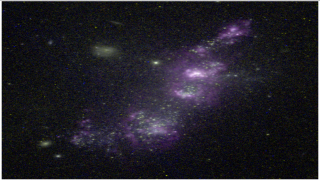Bibcode
Ordovás-Pascual, I.; Sánchez Almeida, J.
Bibliographical reference
Astronomy and Astrophysics, Volume 565, id.A53, 4 pp.
Advertised on:
5
2014
Journal
Citations
7
Refereed citations
7
Description
Context. K-means is a clustering algorithm that has been used to
classify large datasets in astronomical databases. It is an unsupervised
method, able to cope very different types of problems. Aims: We
check whether a variant of the algorithm called single pass k-means can
be used as a fast alternative to the traditional k-means.
Methods: The execution time of the two algorithms are compared when
classifying subsets drawn from the SDSS-DR7 catalog of galaxy spectra.
Results: Single-pass k-means turn out to be between 20% and 40%
faster than k-means and provide statistically equivalent
classifications. This conclusion can be scaled up to other larger
databases because the execution time of both algorithms increases
linearly with the number of objects. Conclusions: Single-pass
k-means can be safely used as a fast alternative to k-means.
Related projects

Starbursts in Galaxies GEFE
Starsbursts play a key role in the cosmic evolution of galaxies, and thus in the star formation (SF) history of the universe, the production of metals, and the feedback coupling galaxies with the cosmic web. Extreme SF conditions prevail early on during the formation of the first stars and galaxies, therefore, the starburst phenomenon constitutes a
Casiana
Muñoz Tuñón